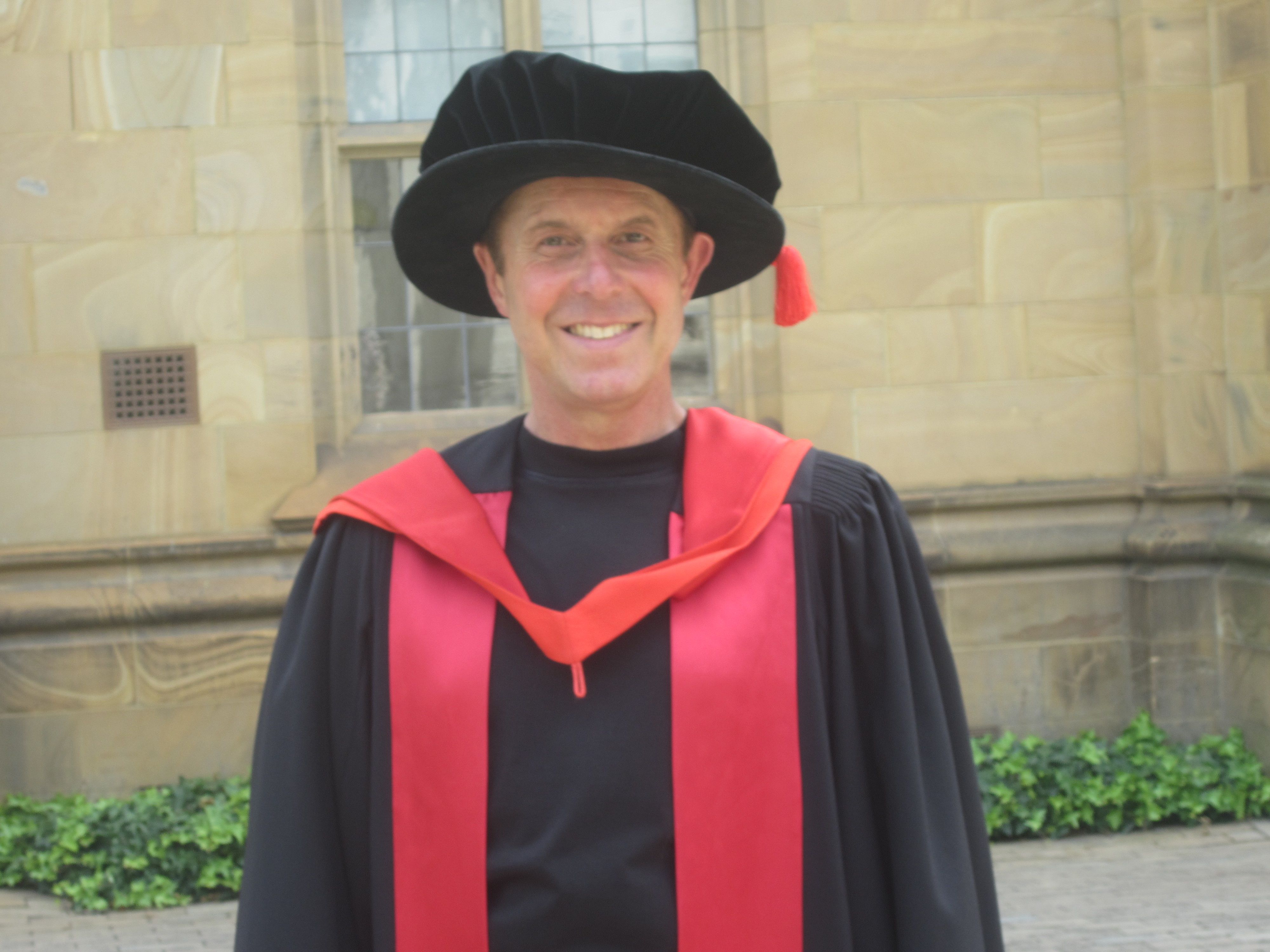‘THE PhD explored the idea that composers are not exactly like a magpie collecting shiny objects. They do draw on past experiences but also build things out of what’s laying around, a bit like a bricoleur — the bricoleur who finds things lying around and builds things out of them. It’s not exactly a totally accurate description of what composers do because they are very highly selective in what they choose.
I also wrote about how the composer differentiates between the work they do as an artist and the work they do as a teacher. How do you divorce yourself from that as a composer and keep your ideas fresh? Sometimes when I was teaching music and trying to compose at the same time, the music that I had to teach would interfere with my thought process as a composer.

In the end, I decided it was pointless trying to separate them. That they should perhaps become integrated, that I needed to change my perspective as a composer. Rather than looking at the music that was happening now, I thought I’d go right back to where things began — the origins of things.
What would it be like if I got into a time machine and went to Judaic times or ancient Hebrew times or even before Christ, for instance, and investigated lots of different countries’ ancient music and then assimilated some of those ideas? I would create something new as well.
By looking at techniques of composition and assimilating some of those techniques of compositions and then using my own materials of music – my own means of writing rhythm for instance, my own scalar formations – I was able to really have the time to work on finding ways to bring the Eastern scales and the Western modes together and be spontaneous with it.
‘What inspires me is a picture of sound. So I have drawn a picture of an ideal sound in my mind because I have always loved visual art.’
Dodecaphony is a very swanky name for a technique of composition where you arrange the 12 tones or 12 semi-tones into a melodic line. It is the antithesis of tonality, which has a pitch hierarchy, and is hence atonal.
The reason why my thesis is called ‘From Pentecost to Dodecaphony’ is because dodecaphony came from a completely new perspective of the melodic line, which itself is highly chromatic. ‘From Pentecost’ meaning from the times of Christ to dodecaphony in the 1920s, when it first made an appearance.
I wanted to create something that was melodically pleasant. And that’s why the melodic line, which had disappeared for probably a hundred years as it became replaced by the repetitive rhythmic element as evidenced in John Cage’s ‘Sonatas for Prepared Piano’, became the central most important aspect of the centrifugal polyphony.
Polyphony is the layering of two or more voice parts or instrumental parts together, and centrifugal polyphony is polyphonic music that has very little reference to a tonal center or harmonic anchor notes because it has no harmonic hierarchy. This idea came from studying for years the scores of post-Romantic composer Gustav Mahler, who I greatly admire.
I found spontaneity at the end of my PhD. I had to work very hard for the music to not be mathematically engineered. Loquebantur and Vespers for Pentecost are good examples of that. I realized that happened every time I used symmetrical scales and methods of intonation, for instance the Octaton scale. I found my music was more boring and I immediately chose asymmetry.
What is important as a composer is integrity. The key is to try and find your own voice. The concept of giving energy to the audience instead of draining them and the idea that the work you do as a composer helps humanity somehow.
What inspires me is a picture of sound. So I have drawn a picture of an ideal sound in my mind because I have always loved visual art. Oddly enough, although I am not a great fan of minimalist music, I love minimalist art.
My research is important because it provides a way of not just looking forward all the time for innovation but looking back and coming up with innovative ideas. ’
Andrew Perkins’ PhD in Music (Composition) involved the creation of a folio of compositions featuring an extended choral-orchestral work, as well as other works for large and small instrumental forces. His accompanying exegesis explores how music may be constructed radiating outwards from a central melodic line, adapting materials and methods from nodal points in music history.
* My PhD is an irregular series in which The Citizen speaks with recent Melbourne University PhD graduates.
